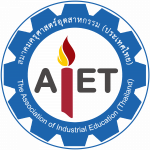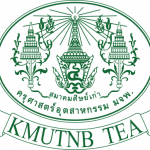Beyond the Headlines Expert education news consult insights fuel informed decisions amid evolving gl
- Beyond the Headlines: Expert education news consult insights fuel informed decisions amid evolving global trends.
- The Role of Technology in Modern Education
- Addressing Equity and Access in Education
- The Impact of Socioeconomic Factors
- The Future of Curriculum and Assessment
- Adapting to a Changing Workforce
- Navigating Policy and Funding in Education
Beyond the Headlines: Expert education news consult insights fuel informed decisions amid evolving global trends.
The landscape of education is constantly shifting, driven by technological advancements, evolving pedagogical approaches, and changing societal needs. Staying informed about these developments is crucial for educators, policymakers, and students alike. This is where thorough education news consult becomes invaluable. Access to reliable, insightful analysis of current trends empowers stakeholders to make informed decisions and navigate the complexities of the modern educational system. It moves beyond simply reporting what is happening, delving into the ‘why’ and ‘how’ to provide a comprehensive understanding.
The increasing importance of data-driven insights and personalized learning are reshaping education, and understanding these shifts requires a dedicated focus on carefully curated information sources. Effective education news consult can help identify emerging best practices, anticipate future challenges, and ultimately improve outcomes for all learners.
The Role of Technology in Modern Education
Technology’s integration into education isn’t merely about adopting new tools; it’s a fundamental shift in how teaching and learning occur. From interactive whiteboards to online learning platforms, technology offers opportunities to personalize education, cater to diverse learning styles, and enhance student engagement. Artificial intelligence (AI) is starting to play a role, offering tools for automated assessment, personalized learning paths, and administrative support. However, this integration also presents challenges – ensuring equitable access to technology, addressing digital literacy gaps, and protecting student data privacy are all critical considerations. A considered approach, informed by expert education news consult, is essential for maximizing the benefits of technology while mitigating potential risks.
The prevalence of online learning, accelerated by recent global events, highlights the need for robust infrastructure and innovative pedagogical approaches. It’s no longer sufficient to simply replicate traditional classroom methods in a digital environment. Instead, educators must leverage the unique affordances of technology to create engaging, interactive, and effective learning experiences. Resources shared via platforms can be expanded upon through consultation with industry experts.
| Learning Management Systems (LMS) | Course delivery, assignment submission, grade tracking | Digital divide, technical issues, teacher training |
| Interactive Whiteboards | Enhanced classroom engagement, visual learning | Cost, maintenance, effective integration with curriculum |
| AI-Powered Tutoring | Personalized learning, targeted support | Data privacy concerns, algorithmic bias, lack of human interaction |
Addressing Equity and Access in Education
Despite advancements in educational opportunities, significant disparities persist in access to quality education. Socioeconomic factors, geographic location, and systemic biases continue to create barriers for many students. Addressing these inequities requires a multifaceted approach that includes increased funding for underserved schools, culturally relevant curricula, and initiatives to recruit and retain diverse teachers. Moreover, ensuring equitable access to technology and digital literacy training is paramount in today’s increasingly digital world. Proactive education news consult can reveal areas where gaps exist, and provide strategic suggestions on how funds are allocated.
Inclusive education practices, which aim to create learning environments where all students feel valued and supported, are also essential. This includes providing accommodations for students with disabilities, supporting English language learners, and addressing the unique needs of students from diverse backgrounds. Overall, equity and access are not just moral imperatives but are fundamental to building a stronger, more just society.
The Impact of Socioeconomic Factors
The correlation between socioeconomic status and educational attainment is well-documented. Children from low-income families often face numerous challenges, including limited access to resources, inadequate healthcare, and unstable housing, which can all negatively impact their academic performance. Breaking this cycle of poverty requires a holistic approach that addresses not only educational needs but also social and economic factors. Programs that provide financial assistance, healthcare access, and early childhood education can help level the playing field and give all students a fair chance to succeed. It’s also important to understand the challenges faced by educators working in low-income communities and provide them with the support they need to effectively serve their students. Access to timely education news consult can help schools to remain updated on grant opportunities and support programs.
Furthermore, systemic biases within the education system can exacerbate existing inequities. Implicit biases among teachers and administrators can lead to differential treatment of students based on race, ethnicity, or socioeconomic status. Addressing these biases requires ongoing professional development, culturally responsive teaching practices, and a commitment to creating a more inclusive and equitable learning environment. Beyond classroom practices, the involvement of families and communities is crucial—building strong relationships between schools and families leads to increased parental engagement and better student outcomes.
Consider the following points when aiming to close the achievement gap:
- Invest in early childhood education programs.
- Provide comprehensive support services for low-income families.
- Recruit and retain diverse teachers.
- Implement culturally responsive teaching practices.
- Address systemic biases within the education system.
The Future of Curriculum and Assessment
Traditional curriculum models are increasingly being challenged as educators seek to prepare students for the demands of the 21st-century workforce. There’s a growing emphasis on developing skills like critical thinking, problem-solving, creativity, and collaboration – skills that are essential for success in a rapidly changing world. This shift requires a move away from rote memorization and standardized testing towards more project-based learning, inquiry-based instruction, and authentic assessment methods. Competency-based education, which focuses on demonstrating mastery of specific skills and knowledge, is also gaining traction. Insightful education news consult will show the emerging competencies that are most in demand.
Assessment practices are also undergoing transformation. Traditional standardized tests often fail to capture the full range of student learning and can perpetuate inequities. Alternative assessment methods, such as portfolios, performance-based tasks, and student self-assessments, provide a more holistic picture of student achievement. The use of technology in assessment also opens up new possibilities for providing personalized feedback and tracking student progress over time.
Adapting to a Changing Workforce
The skills needed to succeed in the workforce are evolving rapidly, driven by automation, globalization, and the rise of the digital economy. Education systems must adapt to prepare students for these changes by emphasizing STEM (science, technology, engineering, and mathematics) fields, as well as skills like data analysis, coding, and digital literacy. However, it’s also important to recognize that the future of work will require more than just technical skills. Soft skills like communication, collaboration, creativity, and emotional intelligence will be equally important. Education must focus on developing both technical and soft skills to ensure that students are well-prepared for the demands of the 21st-century workforce. Regular updates through education news consult will allow curricula to be adapted to mirror required skillsets.
Furthermore, the concept of lifelong learning is becoming increasingly important. Given the rapid pace of change, individuals will need to continuously update their skills and knowledge throughout their careers. Education systems must therefore foster a culture of lifelong learning and provide opportunities for adults to access education and training programs. Partnerships between schools, colleges, universities, and employers can help align education and training programs with the needs of the workforce.
- Focus on STEM education.
- Develop soft skills.
- Promote lifelong learning.
- Partner with employers.
- Emphasize critical thinking and problem-solving.
Navigating Policy and Funding in Education
Educational policy and funding decisions have a profound impact on the quality and accessibility of education. Advocating for policies that support equitable funding, high standards, and innovative programs is crucial for ensuring that all students have the opportunity to succeed. Understanding the complexities of education finance and the political landscape surrounding education policy requires careful analysis and collaboration. Diligent education news consult will keep stakeholders abreast of evolving legislative debates.
The role of federal, state, and local governments in education is complex and often contentious. Federal funding can provide significant support for education programs, but it often comes with strings attached. State governments bear the primary responsibility for funding public education, but funding levels vary widely across states. Local school districts are responsible for implementing educational policies and managing school operations. Effective collaboration between all levels of government is essential for ensuring that all students receive a high-quality education.



